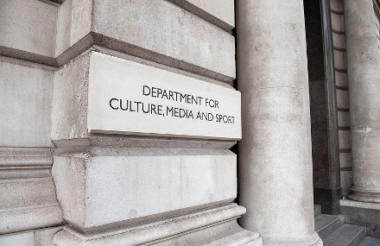A while ago, Sir Stephen Bubb, the leader of the Charity Futures initiative, asserted that the government’s mini-department for charities – the once-vaunted Office for Civil Society – had been “hollowed out until it was little more than a name on the door”.
So far, it looks as if Bubb is being proved right. The Office for Civil Society has all but disappeared from government communications. Its budget has been slashed to less than a fifth of its height. And after the last election, charities were downgraded from having their own minister to having a timeshare on a minister, together with sport, horse racing, gambling, youth, lotteries and loneliness.
Tracey Crouch, who until recently was that fraction of a minister, was left holding basically every brief that no one else wanted, with no time to spend on any of them.
Crouch has succeeded in one slightly exciting initiative: a new Civil Society Strategy, as a keystone of her efforts to improve government’s frosty relationship with the sector.
It’s not really a strategy, though. It's a vision of what she’d like government’s relationship with the sector to be. It was penned in elegant and thoughtful prose by Danny Kruger, a Conservative speechwriter and charity founder, and outlined a rosy future of sunlit uplands which we could all buy into.
Sadly, the vision is not deliverable. The leaders tasked with making it happen have no staff, no money, and no influence.
The problem is that charities are an irrelevance to this government. They’ve got one seventh of a ministerial brief, belonging to a minister who’s just quit because she’s been ignored, in a department with no budget, in a government with no majority, run by a party at war with itself, which is anyway ideologically less supportive of the sector than any government in recent memory.
It’s hard not to ask how it went so wrong.
What can be done?
On the narrow question of how we get better government services to charities, there are a couple of things which can obviously be done at DCMS. The main one is to give the charities minister some money to spend.
There is cash there. The government has identified £2bn in dormant assets which in theory should flow to the sector, and my personal suspicion is that there is much more there than the relatively cautious estimates so far essayed. But there seems to be little will to get on with gathering it in.
The sector is desperately in need of grant funding, which unlike tax relief can be targeted at the poorest areas and the neediest causes. But it’s unlikely to get it.
But to think about structural funding for the sector shows a lack of ambition. The charity sector has – if we are honest – had a tendency to welcome crumbs from the government table. We have welcomed £20m transition funds and a range of increasingly niche tax cuts, when these will have no impact whatsoever on the problems charities are trying to solve.
The real problems
I think it’s becoming clearer that charities’ real problems can’t be solved in the Department for Digital, Culture, Media and Sport – the siding into which the sector was shunted after Theresa May took power. The more proximate solutions are all in the Ministry for Housing, Communities and Local Government, down the road, which is probably where a minister for civil society should really be working. It is there that charities can address the big issues facing them – commissioning, most pressingly.
I’m not necessarily arguing for a machinery of government change, though. I'm told it's disruptive and difficult, and anyway it doesn’t matter where you sit if you can’t reach the levers of power. And those levers don’t lie in MHCLG either. They lie in Number Ten and Number 11 Downing Street.
Voluntary sector bodies are not a homogenous group, but they all share a commitment to one of three things – the strengthening of communities, the preservation of our common culture, or the creation of a fairer playing field. This last, in particular, is the primary duty of most charities, and it needs a change in the outlook of the whole government, and in the way we run our society. It needs a greater empowerment of regional and local authorities, a greater focus on care, especially social care, and a new approach to benefits and housing.
It also needs a change in our economy. Our country is has been stalling because the government has spent seven years obsessing about balancing the books and taking spending out of the economy. What it needs is a programme of regeneration and spending like the one Franklin Delano Roosevelt brought to rejuvenate the United States in the 1930s. Sadly what it has got is not FDR, but Theresa May and a bunch of Brexiteers.
Without these changes of outlook at the top – without an acceptance that the government needs to work for the benefit of all citizens, rich or poor – it hardly matters whether charities have a whole minister, or some fraction of one, or none at all.
There may, though, be a slender ray of hope. There was some sign in the last Budget that if – if – we can reach a sensible settlement on Brexit, or ideally not leave at all, then we might have hit rock bottom, and be on our way out of the hole.
|











